
|
A selection of eight research projects that I am currently involved in with VLC group colleagues or with international co-workers is as follows. Please consult the hyperlinks and publications for further details if you wish. We have recently been awarded a grant of 4.5 million SEK over 3 years from the Swedish Research Council to construct and investigate immersive virtual nanotechnology environments for learning fundamental science concepts. |
|
As part of a larger group project exploring students’ learning with a haptic virtual reality visualization of protein-ligand docking developed by Petter Bivall, this specific study aims to explore relationships between students’ interaction and learning with the model. |
|
Investigating Students’ Interaction with a Haptic Virtual Biomolecular Visualization |
|
Research [!! Updates pending…] |
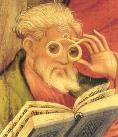
|
Together with Gunnar Höst and Karljohan Palmerius (developer of the model), we are uncovering students’ application of electric field knowledge to a chemical context during their interaction with a bimodal haptic virtual model that renders fields around molecules. |
|
Exploring Students’ Bimodal Perceptions of Electric Fields around Molecules |

|
In collaboration with the above colleagues, we are generating innovative means for visualizing molecular polarity, which may lessen the cognitive demand required for students’ to assign polarity to chemical species. We are testing the latter empirically at present. |
|
Visualizing aspects of Electrostatic Potentials as an Educational Tool for Assigning Polarity |
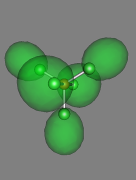
|
In working together with Trevor Anderson and Lindelani Mnguni, we aim to distil the cognitive skills essential for interpreting and visualizing ERs in biochemistry. Distillation of such skills provides a basis for designing tasks that assess these competencies. |
|
Foundations for Developing and Measuring Biochemistry Students’ Visual Literacy |
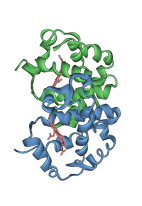
|
Research with Susanne Bögeholz involves formulating a framework for horizontal and vertical translation across multiple external representations (MERs) of biological knowledge. A Delphi method is used to synthesise experts’ views in composing the framework. |
|
Concretising Translation across MERs in Biology Learning and Teaching: Experts’ Views |
|
Inspired by Charles Xie, and together with Jesper Haglund we have collected pilot data (see news) exploring whether robust alternative conceptions about heat, often constructed from tactile sensations, can be altered by interacting with hand-held thermocameras. |
|
Augmenting Pupils’ Visuohaptic Perceptions of Heat and Temperature with Thermoimaging |
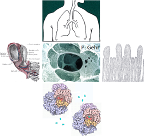
|
Although still in design, this research aims to compare experts’ and novices’ representational usage during problem-solving, with the objective of transforming experts’ implicit representational processes into explicit behaviours beneficial for novice biochemists. |
|
Observing Expert and Novice Representational Use during Biomolecular Problem-Solving |
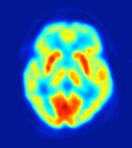
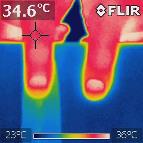
|
In a team with Gunnar Höst and Karljohan Palmerius, we are constructing virtual reality architectures to exploit students’ learning of core science ideas, and to provide a pedagogical basis for public understanding concerning hopes and fears of the Nano-revolution. |
|
Building Virtual Nanotechnology Models for Learning Fundamental Scientific Concepts |
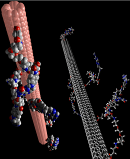
|
Konrad J. Schönborn |
|
Professor |